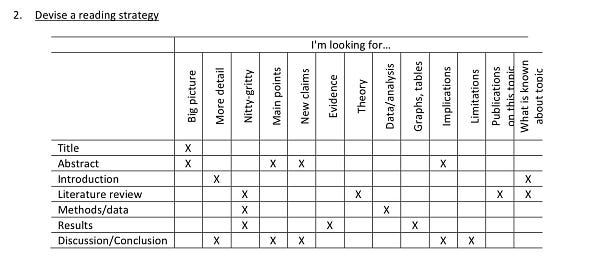What I read this week...
And thoughts on how Biden can turn around his presidency
On recent episodes of the pod, we’ve talked about some of the key turning points over the past 18 months of President Biden’s term. In short, it could be better.
From an organizational and governance perspective, let’s imagine the United States is a highly complex, multi-faceted company. In this analogy, the American voters would be its board of directors and they’d be dealing with some pretty bad quarterly results as of late.
As any capitalist knows, when diagnosing the poor performance of a company (but I suspect there are parallels to a country as well), we would not only dig into the performance of the CEO (or in this case, President), but also senior management, their direct reports, departmental wins and losses, and how adaptable they have been in fixing errors and course correcting.
Even more telling is how the CEO holds their team accountable and makes changes in strategy and/or personnel when the data supports it.
Back in 2020, one of the arguments to vote for Biden was to bring a sense of order and decorum back to the White House. With that, presumably would have come a staff that knows what they’re doing in each relative area. We can probably also safely presume that the President of the United States has access to some of the most talented and qualified individuals in America. But, if miscast in the wrong role, even the most qualified people become instantly unqualified.
Put another way, would you hire a veterinarian, even the best in the world, to do a human heart transplant? How about a plumber to run a battery company? Or an elementary school teacher to be the next Fed chair?
The obvious answer is no. So why has America ended up with a group of economic leaders in the White House who, on average, have less than 2.5 years of experience in the private economy?
Here’s what the Wall Street Journal’s Editorial Board had to say:
Innocence of profits, payrolls and competition seems to count as a virtue among today’s progressives. But that isn’t a virtue when modern government has so much power to regulate and punish private business. Presidents are free to appoint whoever they wish, but the results of business ignorance in this Administration are speaking for themselves.
More bluntly, why would we hand the controls to the biggest and most important economy in the world, especially during an unprecedented and pernicious convergence of inflation and slowing growth, to people who wouldn’t even be considered an Associate at most Wall Street firms?
And while leadership should be held accountable, often the real work happens across the middle layers of management where decisions about strategy, tactics, and execution are made on a daily basis.
For example, a board of directors would reasonably demand clarity on how we’ve been managing the Russia-Ukraine conflict, the ongoing implications (which I wrote about last week), and the path forward that is in the best interests of all Americans.
With record inflation, a worsening mental health crisis, mass shootings, and the rollback of individual rights like Roe v. Wade, is now the time to continue to be the first line of defense for other countries around the world? Or should we reprioritize our focus on domestic progress and the issues Americans care about most (see Q7 in this recent Monmouth poll).
As we approach the midterms, Biden has some important decisions to make that may end up being critical to his presidency (and ultimately whether or not the Dems stay in office). The board has officially put their CEO on notice, and unless he shows improvement, the board’s confidence will only continue to wane. In sports terms, it may not be time to fire the GM, but it’s probably time to think about a new coaching staff and adding the right players to fill the team’s most gaping holes.
With the right pieces in place, then and only then can the team craft and execute a cohesive and practical strategy. And just like a company, hopefully those results will speak for themselves. But that doesn’t discount the efforts of a competent communications/IR team to communicate their performance in a compelling way to shareholders (read voters) as well.
If the past few weeks have been any indication, it’s that American voters (its board of directors) aren’t stupid. They’re frustrated that we are falling behind on big issues. They don’t want window dressing (e.g. gas tax holiday) or big government giveaways (e.g. student debt forgiveness). They want practical, common-sense solutions and competent governing.
We need the President to shake up management before the board replaces him.
What I read this week…
US Inflation Accelerates to 9.1%, Once Again Exceeding Forecasts (Bloomberg)
Analysis: Euro-dollar parity leaves ECB facing costly choices (Reuters)
Biden’s Hiring Policy: No Business Experience Needed (WSJ Ed Board)
NASA Reveals Webb Telescope’s First Images of Unseen Universe (NASA)
On bullshit in investing (Noahpinion)
Sir Mo Farah reveals he was trafficked to the UK as a child (BBC)
Britain’s Conservatives Rise Above Identity Politics (WSJ Opinion)
Watch Uvalde school shooting video showing police response (Austin-American Statesman)
Where Is the National Outrage Over Uvalde? (The Atlantic)
On Twitter…



















If official macro data were better (as you discussed in last month's podcast) I honestly think the Biden presidency would be in better shape. How many of the current problems can be attributed to the Fed, or the Biden administration, not having the opportunity to be nimble because they're looking at data that is itself not market-based and, given their backgrounds, they don't know how to compensate. So they rely on official data-manually collected, sparse, and often not transaction based.
I was told to come here and post about something called spacs